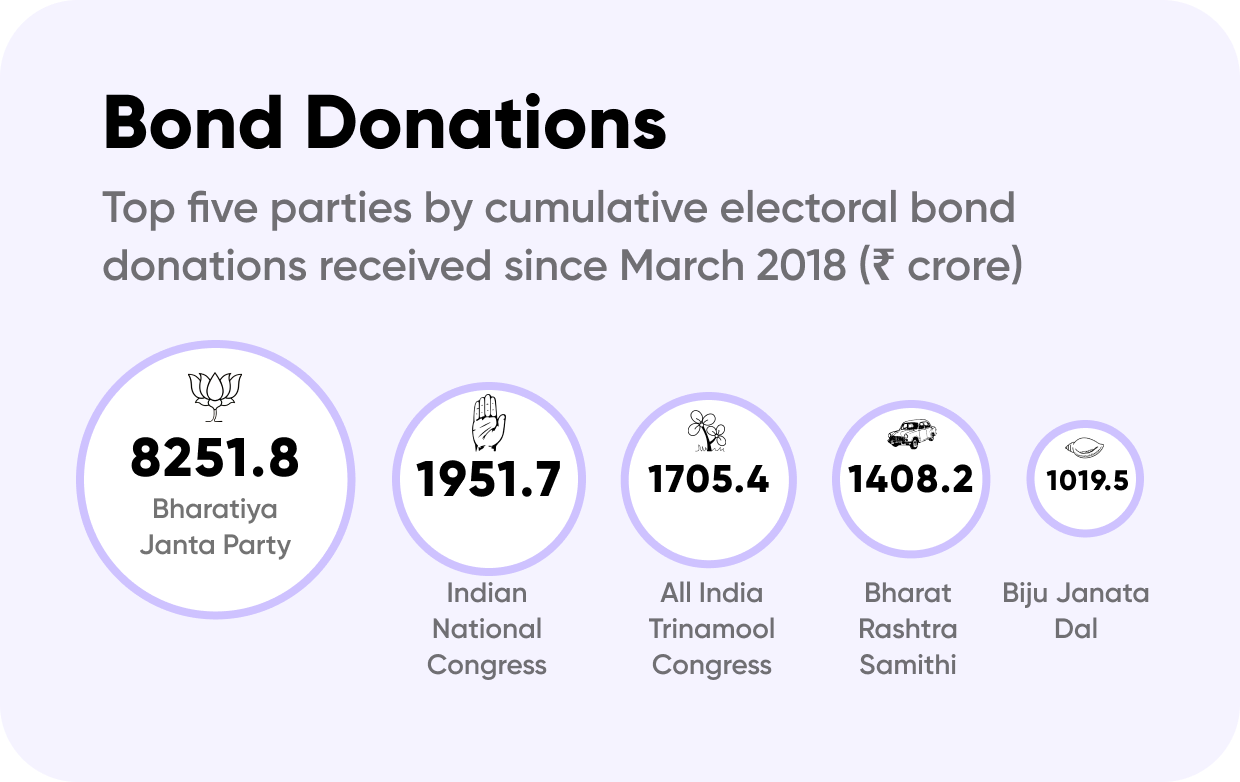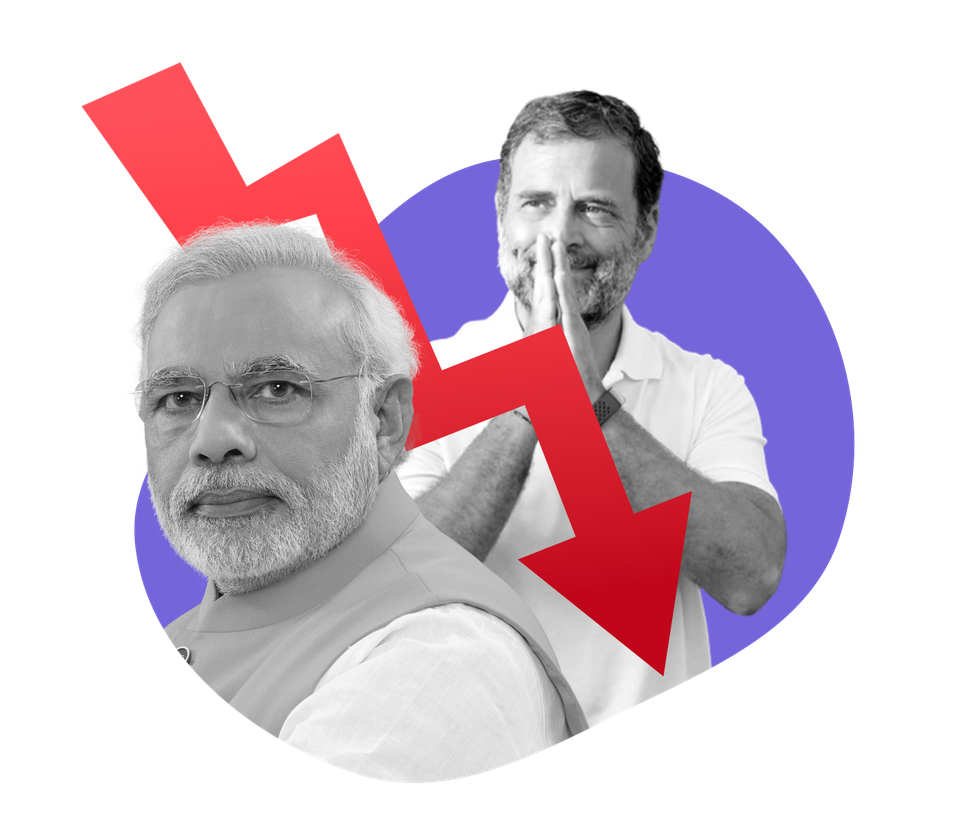Last week in a nutshell
The Electoral Bonds data is out. We now know which company donated to which party. Keep scrolling to find out 👇
The report titled ‘Income and Wealth Inequality in India, 1922-2023: The rise of the Billionaire Raj’, estimates that as of 2022-23, the top 1% earn 23 times an average Indian. In 2022-23, 22.6% of India’s national income went to just the top 1%. This is higher than even during the inter-war colonial period. In other words, states the paper, India’s modern bourgeoisie is now more unequal than the British Raj.
Markets rally as the US Fed signals three rate cuts. Markets on Thursday rose, joining a global rally, as the US Fed Reserve projected faster-than-expected growth for the American economy and at the same time stuck to its plan to reduce borrowing costs. Before closing, Sensex gained 539 points and Nifty gained 173 points.
Nvidia CEO Jensen Huang said this about India. In his conversations with Prime Minister Narendra Modi, he highlights India's need to become a part of AI value addition rather than just exporting India's data to train super-sized large language models.
Keep scrolling to read the big story 👇
The (Electoral) bonds between us
On February 15, 2024, the Supreme Court declared India's Electoral Bond scheme unconstitutional, triggering significant controversy. After that, SBI was reprimanded by the SC for withholding vital information, prompting scrutiny of the entire scheme.
But what are Electoral Bonds? They allow for anonymous contributions to political parties, letting businesses support political parties without fear of repercussions. Critics argued that this could potentially be exploited, where political favours are exchanged for donations. Want to know more? Read what our experts have to say.

Eventually, the Election Commission of India on 21st March published the detailed Electoral Bond data submitted by the State Bank of India on the orders of the Supreme Court of India.
Here are the top donors of the major parties.
Bharatiya Janata Party: Megha Engineering, Qwik Supply Chain (Reliance partner), and Vedanta Group contributed ₹584 Cr, ₹375 Cr, and ₹230 Cr respectively.
Congress: Vedanta Group, Western UP Power and Future Gaming and Hotel Services donated ₹125 Cr, ₹110 Cr and ₹50 Cr respectively.
Aam Aadmi Party: Contributions totalling ₹65.25 Crore came from companies like Aveer Trading, Bajaj Auto, MKJ Enterprise, and Torrent Power.
Trinamool Congress: Future Gaming and Hotel Services Private Limited donated a staggering ₹542 Crore.
What our expert says
"It’s important to recognize that electoral bonds have stirred controversy due to their potential implications on transparency and accountability in political funding. While they may not directly threaten financially stable companies, the removal of limits on corporate donations could exacerbate concerns regarding undue influence on political parties. The abolishment of the 7.5% limit on annualized profits for donations may raise questions about the extent to which corporate interests could sway political decisions. Thus, while electoral bonds may not pose an immediate financial threat to stable companies, their impact on democratic processes and governance warrants careful consideration and potentially, reform."
—Kashish Manjani, Investment Head at Stack Wealth





